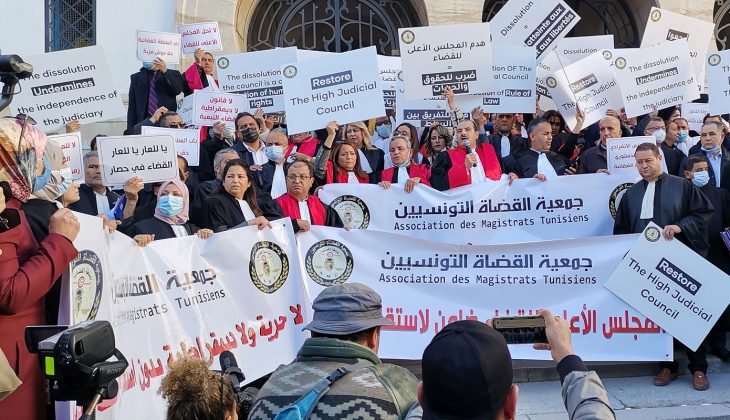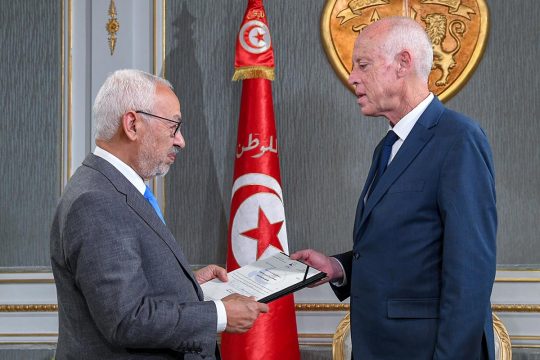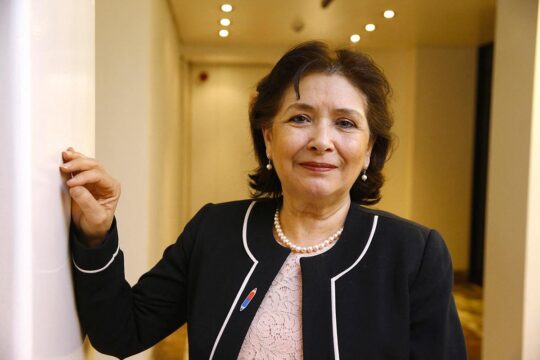"We chose this day to focus on an ambitious project, and I wanted it to be Independence to present (...) the law on criminal reconciliation,” announced Tunisian President Kaïes Saïed on March 20, 2022, “so people can recover the money stolen from them, rather than waiting for legal cases pending before the courts that have not allowed our people to recover much."
The former constitutional law professor added: "These funds that we recover we will transfer to the poor and disadvantaged regions, giving priority to the most disadvantaged.” The next day, the presidential decree on criminal reconciliation was published in the Official Gazette.
Essebsi dreamed of it, Saïed did it
Thus, Saïed has done what his predecessor Béji Caïd Essebsi dreamed of. After more than two years of conflict with civil society, Caïd Essebsi (2014-2019) succeeded in passing a law whose ambitions had been revised down by the time it was adopted in September 2017. He had had to set aside the amnesty he wanted for senior government officials suspected of embezzlement and those suspected of tax offences.
Wahid Ferchichi, a professor of public law, was a member of the technical committee responsible in 2012 for elaborating a draft law on Tunisian transitional justice. He remembers Saïed as a discreet and solitary colleague, who developed a taste for politics with the 2011 revolution and who attended some of their meetings. "Saïed has not changed much,” says Ferchichi. “Since 2012, he has been obsessed with criminal reconciliation. He never stopped defending it during our debates.”
Redirecting ill-gotten gains to the regions
Since the fall of Ben Ali, this law on "national reconciliation" has kept returning to the mouths of politicians. Saïed has been talking about it since he was elected President in 2019.
The new law allows the granting of an amnesty to any businessman or woman applying for "financial reconciliation" who has a case under examination by a Tunisian court for corruption, bribery, foreign exchange crime, customs crime or misappropriation of public property. The condition for benefiting is to repay or invest the disputed amounts in regional development, with regions being prioritized according to their poverty rate.
This is what Saïed calls "building democracy from below", which he claims to be implementing since he became sole master of the state by declaring a state of emergency on July 25, 2021, freezing the parliament and dismissing the head of government.
Supreme Council of the Judiciary dissolved
A decree dated September 22, 2021, grants the president unprecedented powers. This decree includes the suspension of the 2014 Constitution, with the exception of its preamble and the first two chapters relating to general provisions and rights and freedoms; the possibility for the president to legislate in all areas; the impossibility to appeal decrees on grounds of unconstitutionality; and the president’s appointment of a government that he heads in the weekly cabinet meeting. Saïed used this decree to put in place "his" law on criminal reconciliation.
But there was a hitch. On December 27, the Ministry of Justice referred the bill to the Supreme Council of the Judiciary for an opinion. The independent body refused to validate it. It recalled that a transitional justice law had established specialized criminal chambers whose mandate includes dealing with cases related to corruption and financial malpractice. The Council pointed out that a decree could not override an organic law passed by a majority of parliament. On February 6, Saïed announced the dissolution of the Council and its replacement by a "Provisional Council", to which he has appointed most of the members.
“No tools or legal framework”
The same logic seems to apply to the law on criminal reconciliation, which consists of 51 articles. A commission for criminal reconciliation is to be set up under the Presidency. Its eight members are to be appointed by presidential decree. The Head of State has the right to dismiss its members.
Beneficiaries of reconciliation will have to pay 50% of the amount stolen from the state determined by the commission, or 50% of the cost of carrying out a regional development project corresponding to the same amount. Putting up this first instalment will allow each individual to benefit from a so-called provisional reconciliation stopping legal proceedings. The reconciliation will be final only after payment of the full amount within a period not exceeding three months. This will lead to the cancellation of prosecution and any sentences pronounced against the offender.
"The commission lacks transparency and independence. It has neither the tools nor the legal framework to render sentences on a crime or offence of corruption,” warns Sihem Bensedrine, former president of the Truth and Dignity Commission (IVD). “It is a court of exception, which offers no judicial guarantees.”
Thirty civil society groups and international NGOs also protested in a statement last week. They compared this new legislation to the law on administrative reconciliation adopted by former President Essebsi in 2017, which "has not delivered on the administration’s promises", the statement said.
What about the principle of non-repetition?
Civil society organizations say the law does not comply with the principles of transitional justice, namely truth seeking, accountability and institutional reform, which guarantee the non-repetition of violations. "This will entrench the culture of impunity, which is already widespread in several state systems," the NGOs said.
Does this mean that the specialized chambers will be suspended? "No," said Ahmed Aloui, an officer at the Tunis office of the United Nations High Commissioner for Human Rights. "However, Saïed intends to withdraw from them the files linked to businessmen suspected of financial abuse. That could lead to an increase in corruption." Transitional justice has shown that during the period of the dictatorship there were close links between human rights violations and corruption, says Aloui. Moreover, he adds, such initiatives hinder the transitional justice process and call into question its objectives, namely institutional reforms and guarantees of non-repetition.
"With this decree, will Tunisia denounce all the international conventions it has signed, including those relating to the fight against corruption?" asks the human rights officer. The answer must be "no", according to him, "because even if transitional justice mechanisms are no longer in the 'new' constitution, the upcoming referendum of July 25, 2022, Tunisia’s commitments and the treaties it has ratified all take precedence."








